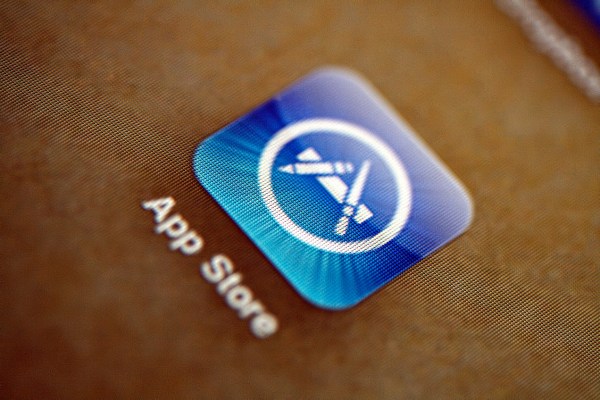Last week, we noted a recent change to the App Store’s algorithm, which appeared to have more heavily impacted iPad app developers, and ultimately resulted in ranking changes for some subset of app publishers. Now, we have more evidence that supports the theory that the recent changes to app rankings were actually an adjustment to the algorithm, as opposed to a glitch or a test on Apple’s end.
The new data comes courtesy of the mobile marketers at TUNE, who had also been investigating a series of algorithm changes occurring on the App Store during the month of July. Changes like these are notable because a move in an app’s rankings can affect a publisher’s visibility in the App Store, and ultimately, its bottom line.
The most obvious change took place in mid-July, when many developers noticed their app crashed in the rankings only to climb back up again in the days that followed – but not always to the same position.
However, TUNE says it began noticing further adjustments going as far back as July 8 and continuing until today. These changes, tracked by its App Store algorithm monitor Sonar, have affected both iPad and iPhone rankings, the company found, and seem to be focused on app titles and reviews.
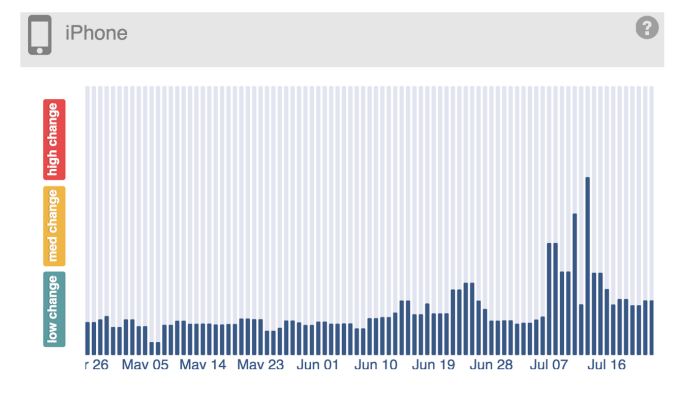

“In recent months, we’ve heard Apple will begin taking a stricter approach to App titles,” the company told us. “This is likely in response to the abuse of ‘keyword stuffing’ in titles.”
By “keyword stuffing,” what TUNE means is that many app developers today are using lengthy titles that describe their apps in order to make sure they rank higher for certain keywords that are used by consumers searching for those specific terms.
Despite the fact that this technique is commonly cited as one of the bigger “mistakes” app developers make in an effort to get their apps better ranked in App Store searches, it’s still used today by a number of publishers.
That may be changing now, however, as Apple has begun to crack down on the practice, says TUNE. In fact, Apple has contacted some developers to inform them that “apps with long names may cause issues,” and it recommended that “app names don’t exceed 64 characters,” for example. Developers were then asked to upload new versions of the app with a shorter title.
The algorithm adjustment, notes TUNE, means Apple is likely tightening up and weighting app titles differently. Though the biggest movement is behind us, it seems, the change has impacted both the Top Chart rankings and the keyword rankings, the firm found.
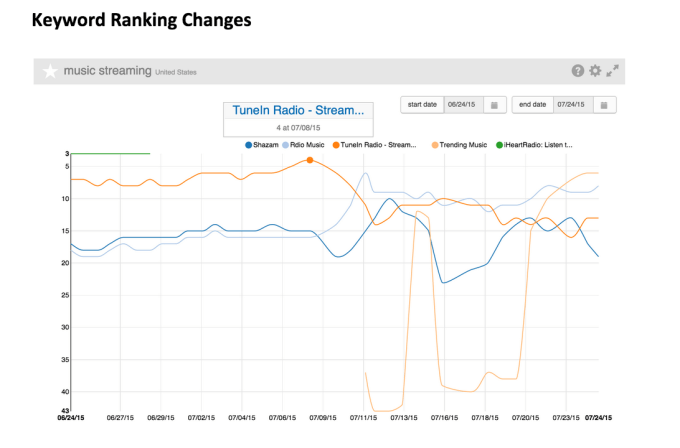
Data from July 8 showed that the adjustment then had a greater impact on search rankings as compared to Top Charts. You can see an example of this for the search term “music streaming.” On July 8, TuneIn Radio dropped from ranking 4th and now hovers around No. 13 for the term, while Rdio and Shazam moved up. Meanwhile, for the term “free music,” Spotify moved from No. 3 to No. 8.
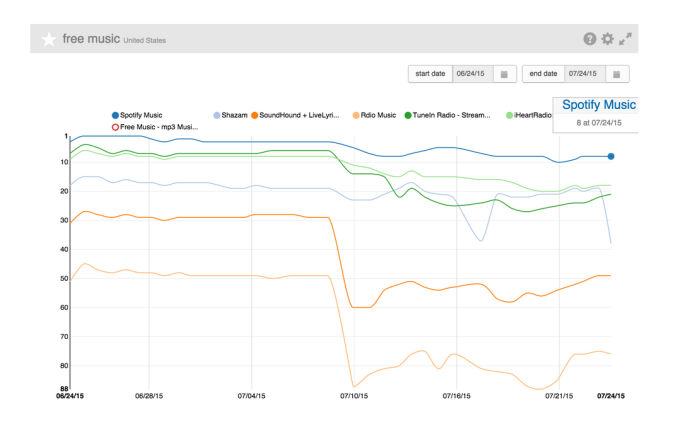
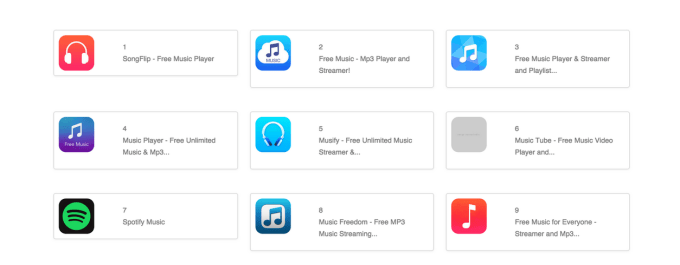
By Friday, July 24, there were 4-5 apps with the term “free music” that ranked higher than Spotify, which was surprising – especially because some of them had little to no ratings and reviews, or were poorly rated. Also odd is that some of their titles were longer, like “Free Music – Mp3 Player and Streamer” – which seems to be the sort of thing Apple was fighting against.
But TUNE’s theory is that Apple may have expected titles to be less spammy, and therefore were willing to weigh the apps more highly than before.
A similar trend could be seen with the search term “online shopping.” Following a July 8 change, a number of formerly low-performing apps (e.g. souq.com and Jumia) rose in the charts.
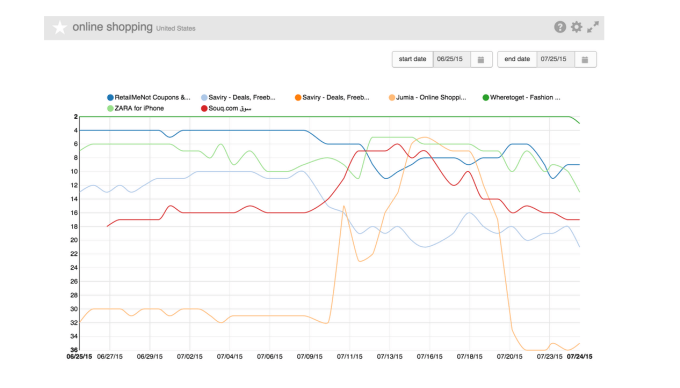
Following these adjustments earlier in the month, TUNE also spotted the changes that affected the Top Chart rankings, noting that they lasted more briefly and many apps then bounced back to normal. Because not all developers were affected, it’s possible that this represented a much smaller tweak.
“While narrowing down the specific change may be very difficult, we believe this signals a trend that Apple is moving toward a more sophisticated approach when it comes to search,” says TUNE. “In the future, they could incorporate and weigh ranking factors like engagement, uninstalls, install/uninstall ratio, and ratings/reviews more heavily, and not focus so much on download and download velocity,” the firm added.
